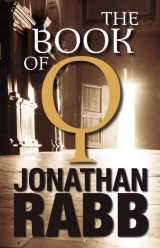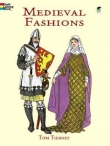
Текст книги "The Book of Q"
Автор книги: Jonathan Rabb
Жанр:
Триллеры
сообщить о нарушении
Текущая страница: 14 (всего у книги 28 страниц)
The final slap was the language. Latin. Angeli had promised Greek. Where was the parchment they had gone to such lengths to protect? Where?And what had someone left in its place? His frustration and disappointment began to boil to the surface.
“I don’t suspect you’ll find much on Ambrose down here.”
The sound of the voice bolted Pearse to his feet, all traces of anger quickly lost to the momentary shock. He spun toward the door.
There, peering down at him from the steps, stood Brother Nikotheos, a small revolver in his hand.
The monk waited. He set his lantern on the top step and slowly made his way toward the platform.
“A monk with a gun,” he said. “That doesn’t look right, does it?” Pearse remained stock-still as Nikotheos spoke. “Then again, neither does your being down here. I can explain the first. The second …” He let the phrase trail off as he drew closer. “How did you find your way into this place?”
Pearse watched as Nikotheos caught sight of the box, then the pit, his sudden surprise all too obvious. A moment of confusion. And yet, he had shown none of it while moving through the chamber, no hesitation with the tapestries or statues. Only with the hidden cache. Which meant he had been here before. Felt comfortable here. And that could mean only one thing.
Once again, Pearse would have to think like a Manichaean.
Stifling the pounding in his chest, he tried to recall the words from the prophetic letters, the “signs of reception.” He knew they were his only recourse. Placing the book on the pulpit and, eyes ever on the monk’s, he slowly began to speak in Greek: “In the salutation of peace, I extend myself to you. In the radiance of light, I call you brother.” He held out his right hand, palm turned to the ground.
For what seemed an eternity, Nikotheos said nothing. He looked down at the outstretched hand, then at Pearse, a slight narrowing of his eyes. In that moment, Pearse thought he had miscalculated entirely, the man in front of him no part of the Manichaeans. He half-expected him to press the gun closer; instead, he watched as the monk slowly let it drop to his side. A moment later, he was extending his hand, placing it on top of Pearse’s. When he finally spoke, his words were barely a whisper: “For the light is within your bosom, an unreproachable light, the sign of the prophets within you.”
Heard aloud, the phrase momentarily stunned Pearse, a thousand-year-old legacy come to life. Quickly recovering, he replied, “O Iesseus-Mazareus-Iessedekeus.”
“O Mani Paraclete, prophet of all prophets.”
“Eternally existent in very truth.”
“Eeema, Eeema, Ayo.”
The two men stared at each other, Pearse now unsure how to render the words he had read into action. He had no cause to worry, as the monk immediately released his hand and stepped toward him. Kissing Pearse on both cheeks, Nikotheos made the sign of the cross on his forehead-two fingers and thumb, in strict Orthodox fashion-followed by the tracing of what looked to be a triangle over his heart. That’s what that meant, Pearse thought to himself. It had been the one part in the letters he hadn’t understood. Pearse repeated the gestures, then both men embraced.
As Nikotheos pulled away, he said, “Be received into our community.”
Pearse nodded once, eager to keep his responses to a minimum. A ritual of greeting was one thing; an entire canon of belief was another. The monk appeared to be thinking the same thing, his expression that of a man not yet fully convinced.
“It’s been a long time since I’ve spoken those words,” he began, the gun-albeit at his side-in plain view. “You’re the first from an outside cell to come to the mountain in many years.”
“Yes,” answered Pearse
“And the first unannounced.”
Again he nodded. Clearly, it would take more than a few memorized lines to quell the lingering doubts. However much he wanted to guard against anything that might expose him, Pearse knew he had to engage the monk, gain his trust. More than that, he recognized the opportunity that now presented itself. Here was a modern-day Manichaean, a man with insights into a world of which Pearse had only begun to scrape the surface. He had to make the most of it.
“None of them was allowed inside this chamber, though,” Nikotheos added, the suspicion growing in his eyes. “None of them even knew of it. And yet, here you are. Without anyone to show you the way.”
A telling admission, thought Pearse. The Manichaeans on the mountain kept their Vault hidden, even from their own, despite the fact that they had no idea what it held. Nikotheos’s reaction to the pit had said as much.
“It’s what I was sent to find,” Pearse answered. “The Vault of the Paraclete.” He expected the added detail to put the monk’s mind at ease.
Instead, Nikotheos’s eyes went wide. It was several moments before he responded. “How did you know that?” he asked, his tone far more pointed than only moments before.
“Know what?”
“The name. How did you know the name?”
The response puzzled Pearse. “I don’t understand.”
“The Vault of the Paraclete. Only those of us of Photinus know that name. It’s been ours to protect for a thousand years. Yet, somehow you know it.” Nikotheos tightened his grip on the revolver. “You find the Vault. You know its name. And you come from the outside. How is that possible?”
Pearse stood motionless. He slowly realized what he had unearthed-the final line of defense between parchment and pursuer. None but the monks knew of the chamber’s name; and they knew nothing of what they protected. The ideal security system, one set up in such a way that should anyone ever have come across a reference to Athos or Photinus in his search for the parchment, his reward upon reaching the mountain would have been blank stares from the monks. “Parchment? We know of no parchment.” Were that person to have mentioned the Vault, he would no doubt have met a far more unpleasant fate. Even now, Pearse couldn’t be sure just how reluctant Nikotheos was to use the revolver. He imagined that the one thing holding the monk back was the fact that his captor was inside the Vault and not asking to be shown to it.
Pearse had little choice but to up the stakes. “Then there must be another source.”
Again the monk’s eyes narrowed, the suggestion even more perplexing. “Another-That’s impossible. No one else knows of it. No one else couldhave known of it. Not even the summus princeps.”
Not yet willing to dive into whatever the “ summus princeps” might be, Pearse knew he needed to make the most of the monk’s confusion. As casually as he could, he asked, “Do you know why you keep these torches lit all the time?”
The question had the desired effect. “Why we … What are you asking me? What other source?”
“Do you know why?” Pearse repeated.
Again, the monk hesitated. “We keep the name hidden, the torches lit.”
“And yet you’ve never asked why?”
“Why?” His frustration mounted. “There was no reason to ask. We protect the eternal flame for Mani. What other source?”
Pearse let his eyes wander to the walls and tapestries. “It was so I could find this place,” he said, his tone now almost inviting. He turned and looked directly at Nikotheos. “You’ve kept the torches lit so that the ‘Perfect Light’ could lead me here.”
“What?” His reply was barely audible. “The ‘Perfect Light’?”
“The other source.” Pearse paused. He had to see how much the monk knew of the scroll. “Do you understand now?”
Nikotheos stared back, confusion slowly giving way to a moment of profound realization. “The scroll?” he asked in whispered disbelief. “You have the scroll?” The significance of what he had said only now struck him. “And it brought you here.” His eyes grew wider still. “The ‘Hagia Hodoporia’ is here.” Pearse watched as the monk’s gaze tracked the discovery from pit to box to glass to leather-bound book. His puzzlement returned. “That … can’t be. The ‘Hodoporia,’ it’s supposed to be-”
“Much older,” Pearse cut in. “Yes. I know.”
Hagia Hodoporia, he thought. Holy Journey. The treasure hidden away for almost a millennium. In two words, Nikotheos had confirmed not only his familiarity with the hidden knowledge of the “Perfect Light”-something evidently not restricted to the Roman Manichaeans alone-but also his complete trust in Pearse; who other than someone of the highest order could know of such things? The former explained away all the “impossibilities”; the latter gave Pearse the freedom to delve deeper.
“So you have it?” the monk prodded. “The written text of the ‘Perfect Light’?” A moment later, he was looking around the Vault in childlike wonder, as if he’d forgotten Pearse entirely. “The ‘Hodoporia’ was here all along. And we never knew it.”
“Yes,” said Pearse.
The monk’s eyes caught on the tapestry of Mani, a giddiness now in his voice. “You know, you grow up hearing the stories, all about how the scroll was hidden away from our enemies. Hidden so well that it became lost even to us. Or stolen. Or destroyed. The myth of the ‘Perfect Light.’ Mani’s will, I suppose.” He turned back to Pearse. “And you believe one day a man will find it, unearth its mysteries, and discover the path to the ‘Hagia Hodoporia.’ The stuff of adolescent fantasies.” His smile broadened. “And yet, here you are. That one man.” A genuine admiration animated his face. “Tell me, when did you find it? The scroll, I mean.”
Pearse waited. “A few weeks ago. We needed time to decipher it.”
“Naturally.” The monk suddenly realized he was still holding the gun. He quickly placed it in the pocket of his robes. “You understand the precaution.” He now sat back on the edge of the pulpit. “Had we been told, we could have helped-”
“It was best this way.”
“Of course.” He nodded, a newfound deference in his tone, even in the way he held himself. Pearse realized that if nothing else, a Manichaean knew his place in the hierarchy. Nikotheos truly believed that the man who had discovered the lost scroll-and who now had access to the “Hodoporia”-had come from the very highest echelons of the church; he thus warranted a considerable respect. Pearse had no intention of convincing him otherwise. Somewhere in the back of his mind, he recalled John J.’s simple words of advice to a newly ordained priest, a young man uncomfortable with the pressures of the confessional: Plant the seeds, Ian. Give them the room to unburden themselves. And listen. Strange how appropriate they seemed in so incongruous a setting.
“The summus princepsmade the decision,” said Pearse, testing the waters.
“Of course.” The monk nodded. “He’s always been fascinated with the ‘Hodoporia.’”
He, thought Pearse. A who, not a what. An invitation for more probing. “You can understand why he wanted to handle everything as discreetly as possible. Especially,” he added, not sure what he hoped to hear in response, “given the events of the last few days.”
“The cardinal has always been a cautious man,” answered the monk.
Pearse tried to mask the astonishment in his eyes. The cardinal. Had Nikotheos just confirmed von Neurath’s involvement? Pearse had no choice but to press further. “Nothing,” he continued, “not even the ‘Hodoporia,’ can be allowed to get in the way of the election.”
“I understand.” Again the monk nodded. “Imagine it. With the ‘Hodoporia,’ he’ll be able to use Rome as no one ever has. It will expedite everything.”
Again, Pearse had to stifle his reaction. Use Rome. What else could Nikotheos mean but von Neurath on the papal throne? And expedite what? A Manichaean in the Vatican … the catalyst for the “one true and holy Christian church”?
Before Pearse could respond, the monk’s eyes flashed with a sudden insight. “Or is it the other way around?” This time, he waited for Pearse; when no answer came, he continued. “The cells were alerted becausehe anticipated the recovery of the ‘Hodoporia’? Which would mean”-he let the thought sit for a moment-“that the vacancy in Rome wasn’t simply good fortune?”
The cells … alerted. Pearse knew he had to tread carefully; even so, the implications of what Nikotheos was saying demanded greater clarification. “The ‘Hodoporia’ and the great awakening go hand in hand,” said Pearse. “The cells must be ready to act.”
“‘The church will be one and His name one,’” intoned the monk, as if reciting a well-practiced verse of prayer. Before Pearse could dig deeper, the monk added, “But this isn’t the ‘Hodoporia,’ is it?”
No matter how eager he might have been to learn more about the cells, Pearse knew he had no choice but to follow Nikotheos’s lead. The monk probably knew little of what was to happen beyond his own cell. A handful of monks on a strip of mountain weren’t going to play too large a role in the “great awakening.” Even so, Pearse couldn’t help but regret the lost opportunity. “Not from what I’ve seen,” he answered. “No.”
“Then what is it?”
It was a question he hadn’t had time to ask himself. “Another piece in the puzzle?” he mused.
Nikotheos nodded. “Still, I’m sure he’ll be eager to hear about it.”
“Yes.”
For the first time, the monk seemed to relax, the night’s excitement obviously having taken its toll. Stepping away from the pulpit, he said, “You can call after first prayer if you like.”
“Call?” This time, Pearse’s surprise got the better of him.
“It’s not all paraffin lamps and outdoor plumbing these days,” he countered, now beginning to make his way to the door.
Pearse did his best at a smile. “Of course.” To his great relief, Nikotheos had misunderstood his reaction.
“We have a telephone, a fax machine.” He pointed up at the steps. “Even something in the door. We installed it after the Great Lavra incident.” He stopped and looked back over his shoulder. “You were the first to set it off. It was how I knew you were here.”
Pearse nodded. As much as he wanted to hear the voice on the other end of the line, he knew contact with Rome was out of the question. It might confirm von Neurath’s role, but it meant serving himself up. Without the ‘Hodoporia,’ he still had no leverage, nothing to force their hand. “I need some time to study this,” he said, picking up the book and easing it into his pocket. “Before I make that call.”
“Of course.” Nikotheos had reached the top step.
Pearse bent over and slid the stone back into place. Jesus was once more in line with the other prophets. The monk, meanwhile, gazed out at the Vault, a newfound appreciation etched across his face. “The ‘Hagia Hodoporia,’” he mused. “Who’d have thought it?” Pearse retrieved the glass, the velvet, and the box, then joined him at the top of the stairs. He, too, took one last glance.
Not surprisingly, his gaze came to rest on the larger-than-life figure of Mani. No doubt due to his own exhaustion, Pearse thought he saw a momentary glint of concern cross the Great Prophet’s eyes.
Maybe he had more leverage than he realized.
Giacomo Cardinal Peretti pored through the diaries, every thought-personal and papal-inscribed within their pages. Boniface had kept meticulous journals, all locked away in the bureau by his bed, unknown to all but his closest allies. That Peretti had removed the only key from around his lifeless neck, then borrowed the last three volumes-June through August-had gone unnoticed by the security men. It would be days before any of them would think to go through the late Pope’s personal effects.
Now, sitting alone in his own rooms-his accustomed bedtime long past-Peretti sifted through the minutiae with tremendous care. Little in the first volume had drawn his special attention: a draft version of an encyclical on faith, lengthy diatribes on the continuing abuses in Kosovo, growing concerns about von Neurath’s ambition. At the end of the second, however, each entry began to include several lines on something far beyond the daily tasks of office, sentences replaced by bullet points.
Peretti read:
July 9:Istanbul discovery still too speculative. Documentation sparse. Islamic text? (Ruini convinced early Gnostic.) Language source uncertain. Some form of Coptic, Aramaic? R concerned by Kleist arrival. (K > von N??)
July 13:Source Syriac. Ruini not familiar with language. Second part Greek (letters??). Old Testament references > Apocrypha? Imagery unusual. Prophetic journeys (Seth as prophet??). Syriac text given to Professor Alihodja (Dept. of Coptic studies). R working with letters.
July 19:Partial translation > Secret Book of John. (Seth, Enoch not part of Gnostic tradition > misattribution??) 3rd or 4th c. Letters through 10th (????).
July 22:Gnostic text only as introduction. Ruini insists “Perfect Light” (???) (fifteen versions, variations). Alihodja unfamiliar with “PL” (all the better). R looking for textual indicators > language still problematic.
July 26:Ruini has text. Alihodja unreachable (???). Thinks has link with Athos (Orthodox???). “Vault of the Paraclete” (???). Return Rome tomorrow.
July 30:If Athos, Ruini speculating something 1st c. (time frame, scope). > If so, why Kleist > von N interested? Ruini no answers yet. Sudden news of Alihodja heart attack. (foul play???) R convinced.
August 5:Sebastiano dead, as well. Only myself to blame. No sign of text. What is on Athos?? And where??
The last entry ended with a prayer for Ruini, a personal recrimination for not having seen the obvious dangers, and one last question:
Von N > “Perfect Light” > Athos: Is what connects them worth killing for?
Peretti closed the book. His friend’s death two days later was answer enough.
A Manichaean prayer and Athos. What was von Neurath up to?
He had waited ten minutes in his cell, time enough to be sure that Nikotheos wasn’t still lurking about. Keeping the robe and bonnet on, Pearse had then made his way back to the great doors, along the open bluff, through the wooded trails, before coming to the ancient Ford. Three in the morning. Another hour to matins. Enough time to get him off the mountain.
What had taken Gennadios fifteen minutes took Pearse forty, the road to Daphne no less treacherous on the return trip. With the first hints of dawn-a gray matted backdrop as yet unwilling to cede the day to the sun-so, too, came the first boats out of the harbor. Dressed in monk’s habit, Pearse had little trouble securing a ride to Ouranopolis, the backpack accepted with a curious look from his still-groggy captain. A gift from a recent visitor, Pearse explained. God’s will that he put it to use. The man shrugged, then pulled the boat out into the Aegean. Oranges, not God’s will, were his concern this morning.
Ten minutes into the ride, the drone of the engine gave way to the echo of the simandron-the long wooden beams used for calling the monks to prayer-each with its own particular timbre, deep, resonant tones of muted whale song bouncing off the scarps of the mountain. Last night, their music might have drawn him in, heightened his sense of reverence; now, they only reminded him of the hunt.
Another ten minutes and the din began to fade as the first sign of sun peeked through from above the tower at Ouranopolis, the hamlet already alive, boats busy with early-morning cargo for the mountain. A lone monk easily slipped through the swirl of movement, the narrow street where Andrakos had left the car still hidden under predawn shadow. Pearse quickly removed the robe and bonnet, tossed them onto the backseat, and fired up the engine. Within minutes, he was back on the highway.
The question was, To where? Igoumenitsa, Athens, and Salonika were no longer possibilities; the news from Photinus would no doubt send the Vatican men to all three, and far quicker than Pearse would be able to get to any of them. More than that, he knew Nikotheos would waste little time in alerting the Greek police to the disappearance of one of the monastery’s most valuable manuscripts. Not to mention the issue of Andrakos’s stolen car. Given the time limitations, and the nature of the various border options, Pearse decided on Bulgaria, his best bet Kulata-according to the map in the glove compartment-an hour and ten minutes if the roads were kind. He had to hope Nikotheos had waited until aftermatins before checking on his guest.
As Athos slipped farther and farther into the distance, the Holy Mother seemed more than content to remain by his side, her watchful gaze keeping the roads all but empty, no trace of police during the seventy-five-minute hurtle through the Greek countryside. She was equally kind at the border, a shift in guards-men impatient to get home-a priest’s collar and Vatican papers once again sufficient to grease the wheels. Ten minutes from the small outpost, he pulled the car over and exhaled, trying his best to focus on what to do next.
It was only then that he realized he had no idea where he was meant to go. Everything since San Clemente had propelled him along without much time to think, one task to the next, a small leather-bound book having replaced the scroll. Aside from that, though, he had to admit he was no further along than when he had left Rome. Granted, there was the confirmation from Nikotheos as to von Neurath’s role, the hint of something to be “expedited,” “cells” in the waiting-hardly enough, though, to bring the diverse pieces together.
Settling on what he did have, he reached for the backpack and pulled out the leather-bound book.
The first page revealed the now-familiar Manichaean greeting, this time in Latin. Though six centuries removed from the last of the “Perfect Light” letters-the date, “April 28, 1521,” scribbled at the top-the “signs of reception” remained identical in form and meaning. New to the layout, however, was a small triangle-one half of it darkened, the other half empty-occupying the top right-hand corner of the page. As with the odor from the box, it momentarily registered with Pearse. But he was too caught up in the text below to give it much thought.
There, in a stylized Latin, read the tale of one Ignacio de Ribadeneyra:
For those who have happened upon this book in an act of plunder and sacrilege, let me assure you that you will find nothing in these pages to rouse your interests. Take the gold pieces I have left you as ransom. Leave the book unharmed as your first act of contrition.
For those, however, who have come to this through the “Perfect Light,” do not let anger win the better part of your soul. Rather, accept from me, Ignacio de Ribadeneyra, a poor brother of the monastery of Sanctus Paulus, the deepest apology at your disappointment. You have only to recall the ravages of the day, the great schism wrought by an heretical priest, and you will understand the choice I have made to conceal the “Hagia Hodoporia” far from the walls of Photinus. If I am ajudged to have acted with recklessness or with fear, know that my decision was dictated by the strictest faith and guided by the hand of Mani.
My journey to the “Hodoporia” began in the second year of the reign of Giuliano della Rovere, known to Christendom as Julius II. My place within the world at that time was to the north of the great city of Valladolid, a gathering of monks of the Hieronymite order, ever vigilant in our work for the Savior. To those who ventured into our abbey, we were healers of the sick, devoted to the word of Rome, and constant in our Catholic faith. To ourselves, we were minions of the Great Prophet, men who awaited the signs of the great awakening.
It was in the winter of 1504 that I reached my sixteenth year. Having completed nine arduous seasons of study in the ways of theLiving Gospel, I was told that I should make the great journey, that my future was to be found in the search for the lost scroll. None from my poor monastery had ever been so chosen. Why such an honor fell to me, I do not know. Nor have I found an answer in these past twenty years. Quick of mind and eager of spirit, I know that it was the will of Mani alone that ensured my success, nothing else.
With much anticipation, I set off from Palencia for the palace of Cardinal Vobonte, a man of considerable power at the court of the French king, and a brother devoted to the restoration of the scroll. I toiled for many months under his tutelage, schooled in the history of the scroll, and made privy to the wonders of the “Hodoporia.” My mentor was a man of unending compassion, purity of heart, although his devotion to the scroll did at times overwhelm me, so fervent was his commitment. It was not long, however, before I began to share his great zeal, once again Mani’s will that I should excel, my training quickly absorbed. With the last snow of the season freshly packed on the ground, I set out from Paris.
Would that I had carried my devotion as far as its gates. Would that I had been resolute. How might the world be changed now. But it was not to be. I was a boy of sixteen, unaware that I should not see France, nor my beloved Spain, for nearly twenty years. Perhaps, as I write now, ever again. It is, I know, just punishment for the life I have led.
Such is the price of weakness.
The first years of my journey came and went with a speed I cannot now fathom, lost in a haze of indulgence, for which I remain in constant struggle to atone. First to Lyons, then Milan, Bremen, all the while convinced that I was seeking out long-lost traces of the letters from the scroll; instead, I was steeping myself in the depravity of the age. For seventeen years, I let the world of darkness seduce me, not in wines and meats, nor in things of the flesh, but in a different kind of self-delusion, my soul profligate in its duty to the light. Like Augustine before me, I was too young or too prideful for the demands of such a journey; my faith was strong, but my head swam with questions, my place and purpose in the world undetermined. Was the scroll, its meaning, to be my own redemption? So much clouded my mind, a wave of indecision that forced me into a world I was perhaps too simple to understand. My love of God, my faith in Mani, though ever present, did not hold me to the task I had been set. A test of will? I cannot say. If so, I was tested, and I failed.
How often I wished that I had but copied a few lines from the Living Gospel, taken with me the words of Mani to temper my own will. Then, perhaps, I might have curbed my distraction. (Or is that merely my pride speaking once again?) But to carry such things was too dangerous, the deception of the good Catholic never to be placed at risk. It was a role I learned to play all too well, my own corruption no exception within the world of the debauched popish church.
And so unto this wanton life befell the ravages of the times of which I have spoken, and which, even now, consume the better part of the Christian world. When that heretic priest arose, I should have taken it as a sign to shake myself from my torpor, to seize the chance and redeem myself in the eyes of Mani. But I did not. Instead, I took this Luther to be a Brother of the Light, his contempt for Rome proof of his convictions. I convinced myself that he had found the “Hodoporia,” for what else could so shake the gates of the ecclesia impura? Surely his words at Wittenberg had been a prelude to the great awakening. Surely it was all evidence of the Great Hand of Mani. Once again, I was self-deceived. This Luther was no brother, his message one of division, not unity.
How rife the world was for such upheaval. How perfect the time for the “Hodoporia” to assert its will. How miserable my own existence.
At last awakened from my slumber, I only compounded my iniquity. Like Jonah to Tarshish, I ran further from my duty, now to the East and the city of the Turks. Can I say that I knew I would find the scroll within its walls? I must confess, I cannot. I ran to Constantinople to bury myself in a world unknown. Yet even in my own depravity, Mani guided my steps. Even in my humanity, He allowed me to find the seeds of my salvation.
The story of my redemption is one of Mani’s power….
Pearse flipped through the next few pages-Ribadeneyra’s own version of Confessions-his salvation, in keeping with Augustine’s, at the age of thirty-three while sitting in a garden in Istanbul. But whereas Augustine had succumbed to the flesh-“give me chastity, and give me constancy, but do not give it me yet”-Ribadeneyra had fought a far less tangible enemy: his own self-doubt.
Pearse wondered if such uncertainty ran like a common thread through all those who sought the scroll. His own affinity for the Hieronymite monk grew with each page.
And yet, he couldn’t help but ask just how seriously he was meant to take it all. The phrase “Take it and read” gave way to the equally inspiring, though now familiar, “Those who enter may see the light.” Clearly, Ribadeneyra had chosen the phrase after having seen the scroll and deciphering its message. Still, it made for compelling narrative. Even more absorbing were the tales of midnight jaunts to abandoned churches, secret messages delivered by Orthodox priests, a vision of Mani himself appearing to set the wayward brother on his proper course-all of it ultimately leading the monk to “enter” an eleventh-century church, the scroll hidden within one of its long-forgotten crypts. Soon thereafter, the decoding of the text, the connection to Photinus, the Vault of the Paraclete. Piety rewarded. Certainty reclaimed.
Pearse could only hope for such results.
On unearthing the “Hodoporia,” however, and on reading its contents, Ribadeneyra had made the momentous decision that the brothers of Mani, and the world in general, were not yet ready to confront its power. His certainty had evidently brought with it a residual serving of pride.
How much of the Pure Tongue flies through these pages. How simple the words, their source undeniable. Yet their power demands too much of us, their truth too great a threat. Are such thoughts a blasphemy? Perhaps. But a blasphemy we cannot confront in this age. Too much now conspires against the “Hodoporia” to unleash its power. Too much would be lost in the frantic swirl of heresies that abound. And if not lost, then abused in aid of this Luther, thus sealing the fate of Mani’s return. No. The “Hodoporia” must appear when all is at peace, when the papal church once again grows well pleased with itself and is not armed against its enemies. (How I regret the chance I let pass. How long I shall live with the shame.) Then shall the “Hodoporia” assert its power, and thus make a place for the fullness of the light.








